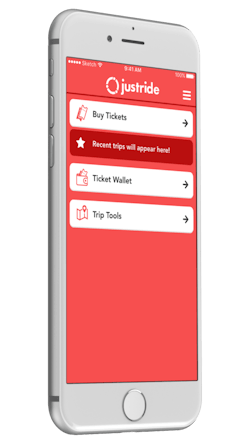Are bespoke AFC systems holding transit agencies back from being better mobility managers?
A research report performed by Masabi has found North American transit agencies have an aim to offer seamless integration of mobility options, their existing customized Automatic Fare collection (AFC) systems are proving a challenge to upgrade.
The company’s Transit Agency Research Report: The State of Fare Collection, is based on a survey of more than 60 transit agencies predominantly based in North America, and reveals some of the key challenges agencies are facing when it comes to providing fare collection services to riders. Masabi notes these bespoke systems are often in place for significant amounts of time, are hard to update and expensive to install and maintain. The full research is available in a new eBook Transit Agency Research Report: The State of Fare Collection.
Key findings Include:
- 43% of agencies have been operating their “core” AFC systems for over a decade
- Most “core” AFC systems take one to two years to go live (30%), with a further 11% taking over three years
- 59% of agencies stated adding new features to their system was either ‘Hard’ or ‘Very Hard’ with updates occasionally or hardly ever happening
- 41% of agencies declared that they are paying over 10% of their fare revenue to run their AFC system
- 62% of agencies have either deployed or will deploy an Account-Based Ticketing system for their riders
- 24% of agencies are looking into deploying Account-Based MaaS while 22% are interested in Practical MaaS
Masabi says the transit ticketing industry is changing as more agencies move away from physically issuing tickets to using mobile phones and contactless bank cards, allowing riders to simply tap and ride to travel. While the company’s research found that Account-Based Ticketing and extending services to seamlessly connect public and private transit options to enable full first/last mile journeys is a focus for most transit agencies, bespoke ‘core’ AFC systems are leaving many transit agencies unable to keep up with the pace of technology change.
“The results of the survey are both shocking and unsurprising,” said Brian Zanghi, CEO of Masabi. “For too long transit agencies have been denied access to systems that can keep up with technology in a cost-effective way and have been forced to invest in costly and bespoke AFC system. This has led to limited innovation with some agencies able to purchase the latest systems but leaving many underserved and left with systems that are outdated. This isn’t fair to passengers; public transit riders and agencies deserve better. The message from this research is clear – it’s time for a Fare Payments revolution, so people in any town or city have the opportunity to enjoy the best journey experience from their transit providers.”
Masabi explains Fare Payments-as-a-Service (FPaaS) offers a better approach to underserved agencies wanting to provide the latest fare payment services for passengers. Instead of needing to run a bespoke project that is designed, built, operated and maintained exclusively for and by the agency, public transit operators can instead sign up to a Fare Payments platform and pay for services on a pay-as-you-go/subscription basis. This enables agencies to deliver the latest ‘tap and ride’ innovations to riders extremely quickly and grow capabilities as they get released onto the platform.
To support the research, the company published the eBook, A Guide to Fare Payments-as-a-Service. The company says the eBook provides a comprehensive guide for transit agencies to benefit from the FPaaS model. With its MaaS-enabled, open API architecture, FPaaS enables agencies to deliver account-based tap and ride experiences to their passengers, safe in the knowledge that their Fare Payments platform is not only constantly updated with the latest enhancements but also has a future-proof roadmap. This allows them to concentrate on what they do best - providing safe, reliable and convenient journeys for riders.
The ebook and study can be downloaded on Masabi’s website.
